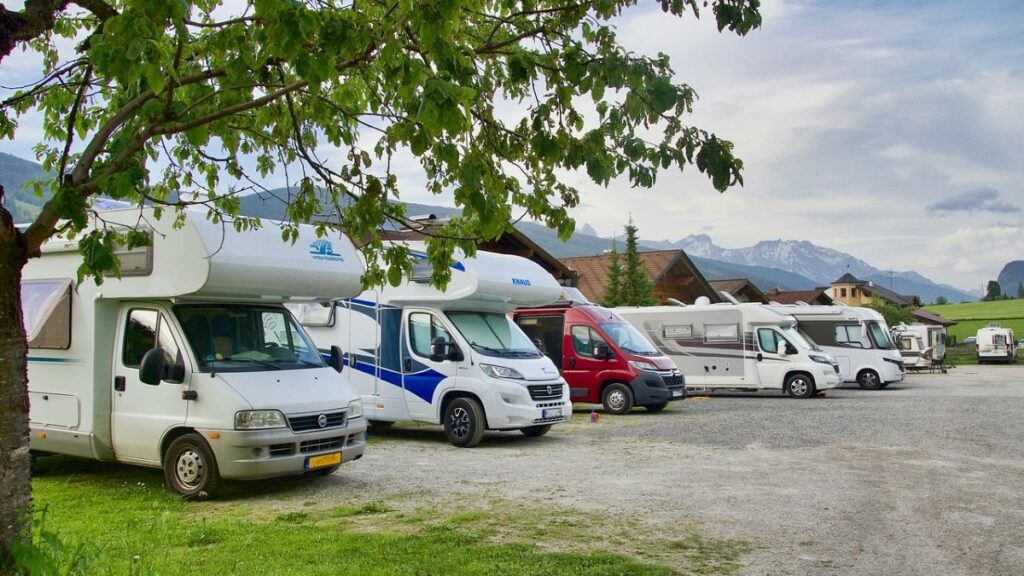Featured image by MemoryCatcher via Pixabay
The appeal of the open road is timeless. A sense of freedom and a chance to commune with nature are just a few of the attractions that the recreational vehicle (RV) lifestyle provides. In the era of travel restrictions and a newfound focus on domestic tourism, an RV rental business presents a promising venture for entrepreneurs.
However, the path to launching such a business can be complex. It is also full of interesting facets, including the realm of RV auctions, which offer potential business owners a cost-effective way to acquire their initial fleet.
This article will explore how to establish an RV rental business, taking into account all necessary steps from planning to launching and maintaining a successful operation.
Conduct Thorough Market Research Before Starting an RV Rental Business
Before you venture into any business, detailed market research is paramount.
Therefore, look at the demand for RV rentals in your locality or where you plan to operate. Also find out who your potential customers are, what kind of RVs they prefer, and how much they are willing to pay.
Also understand your competitors, their strengths and weaknesses, and how you can differentiate your service. Online platforms, local RV clubs, and tourism bureaus can offer valuable insights.
RELATED ARTICLE: 11 WAYS TO MAKE MONEY WHILE LIVING IN AN RV
Draft a Detailed Plan for Your RV Rental Business
A comprehensive business plan is a roadmap to success for any business. It helps you to outline your vision, set your goals, and define the steps necessary to achieve those goals.
In your business plan for an RV rental service, you should cover:
Market Analysis
Detail your understanding of the RV rental market, customer demographics, and potential competitors.
Business Model
Outline how you’ll run your business. For example, will you operate online, have a physical location, or both?
Services
Define what kind of RVs your rental business will offer and any additional services, such as rental insurance or travel planning assistance.
Financial Projections
Lay out your projected income, expenses, and profitability. This should also include your pricing strategy.
Marketing and Sales Strategy
Explain how you plan to attract and retain customers.
Secure the Necessary Funding
Starting an RV rental business can require significant capital, especially if you’re planning on a sizeable fleet.
However, funding can come from various sources. For example, you can use personal savings, turn to bank loans, attract private investors, or even try crowdfunding. Whichever path you choose, ensure you have a solid financial plan in place to manage and repay your debts.
RELATED ARTICLE: WHAT MAKES A BUSINESS PLAN STAND OUT TO INVESTORS?
Procure the RVs for Your RV Rental Business
With your funding secure, you can now acquire your RVs. When purchasing, consider the preferences of your target demographic in terms of size, features, and type of RV. Remember, your fleet is a significant investment and can either make or break your business, so choose wisely.
Obtain Necessary Licenses and Insurance
Different regions have different regulations regarding RV rental businesses. Therefore, make sure to research and secure all necessary licenses and permits. You also need to get the appropriate insurance to cover your fleet and protect your business from potential liabilities.
Set Up Your Business Location
The location of your RV rental business can make a big difference in its success. Choose a location that is easily accessible, visible, and close to popular camping or tourist destinations if possible. Also ensure it has enough space for your fleet and a customer-friendly area for bookings and inquiries.
Establish Your Brand and Marketing Strategy
Create a strong brand identity that resonates with your target audience. To this end, build a professional website and make use of social media platforms to market your RV rental business.
Also collaborate with local tourism businesses or travel agencies to extend your reach. Remember, your goal is to make potential customers aware of your service and convince them to rent from you instead of your competitors.
RELATED ARTICLE: HOW CAN YOU START YOUR WHOLESALING BUSINESS?
Provide Excellent Service to the Customers of Your RV Rental Business
Once your business is up and running, your focus should be on providing top-notch customer service. Therefore, train your staff to be helpful, knowledgeable, and friendly. Be responsive to customer inquiries and feedback.
Additionally, consider offering extra conveniences such as delivery and pickup services, flexible booking options, or pre-stocked amenities. Happy customers are more likely to return and refer others to your business.
Maintain the Fleet for Your RV Rental Business
Regular maintenance of your fleet is essential. Always ensure all the RVs are clean, functional, and safe. Any breakdowns or issues can lead to dissatisfied customers and negative reviews, which can significantly harm your business. So establish a regular maintenance schedule and stick to it.
Regularly Review and Adjust Your Business Strategy
Finally, always keep an eye on your business performance and market trends. Be prepared to adjust your strategy, pricing, and fleet based on customer feedback and market dynamics. Regular reviews will keep you competitive and help you identify opportunities for growth.
Conclusion
While starting an RV rental business can be a challenging endeavor, with careful planning, smart investments, and dedicated customer service, it can also be a rewarding and profitable venture. The freedom and flexibility offered by RVs have a timeless appeal. If you have been considering starting an RV rental business, keep the tips above in mind and get ready to hit the open road. Good luck!
RELATED ARTICLE: EVERYTHING YOU NEED TO START A TRUCKING COMPANY IN 2023
